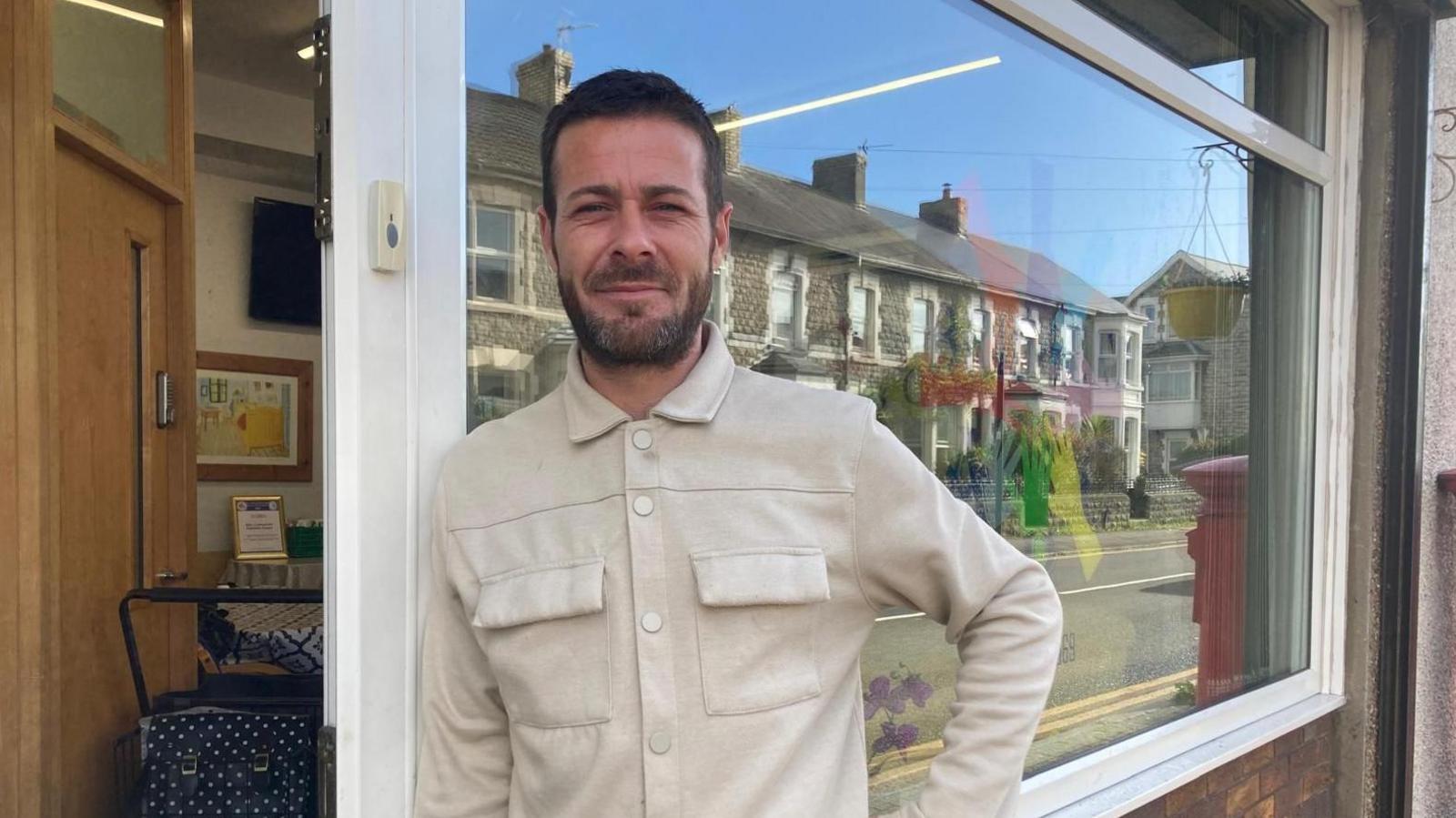I'd be better off in prison says man let out early
'Rats ate my tent and soap' says homeless prisoner
- Published
A man who was released early from prison has said he has considered reoffending after being left homeless.
Luke Davies, 38, has been living in a tent in Bridgend county since he was released in April and said he was struggling with the "chaos" of life on the streets.
More than 1,100 prisoners across England and Wales are due to be released later under UK government plans to ease overcrowding.
The government said its new policy gave staff "more time to prepare" than previous schemes.
Violence, overcrowding, self-harm: BBC goes inside one of Britain’s most dangerous prisons
- Published5 September 2024
Prisons becoming more dangerous - report
- Published16 October 2024
Parc Prison now much more stable, says minister
- Published18 September 2024
Bridgend council said it had a "multi-agency approach" to homelessness.
Last month, 1,700 prisoners were released early after Justice Secretary Shabana Mahmood announced plans to temporarily cut the proportion of sentences inmates must serve behind bars from 50% to 40%.
It followed a policy by the previous Conservative government which said prisoners could be released up to 18 days early, which was later extended to 70 days.

Luke Davies says there is too much uncertainty outside prison
The recovering heroin addict was released early under the previous government's scheme.
He was sentenced to 154 days in HMP Cardiff in February after being caught shoplifting food and alcohol six times from different shops.
"That messed up everything - I lost my flat, a lovely flat," he said.
During his sentence, he was in contact with the prison's resettlement team about housing, but said he felt the early release had jeopardised the process.
"I was told I would have a room or supported housing when I left," he said.
"They came in and said ‘oh you are out on Monday’ and I said ‘what do you mean I am out on Monday?, I am out a month later' and they said 'no, hasn’t anyone told you?'"
By the time he was released he was given some new jeans and an £89 "subsistence payment" given to all prisoners.
He went straight to a homeless charity and asked for a tent, but has struggled with rats, theft and the elements.
"I’ve gone through three tents already - one tent got nicked, the tent I have now has been bitten, every corner by rats - rats have bitten through my tent and ate a bar of soap, right next to my pillow," he said.
"And the tents you get, they are not waterproof. So you are just lying there - drip, drip, drip and you just want to get the heck out of there."

The community outreach centre in Bridgend helps homeless people like Luke Davies with support
He is receiving support from Brac, a Bridgend-based organisation, as well as other housing charities, and said he hoped to get a place of his own, but considered reoffending to escape the "chaos" and "uncertainty" of homelessness.
"I've said 'if this is how it's going to be, I would rather go back to jail where there is some sort of direction'.
"It shouldn't take six months to get a place after jail.
Bridgend has its own 1,800-inmate prison, HMP Parc, and the council said its housing was also in demand for other reasons.
It said there was a 25% increase in the number of people making homelessness applications since 2019-20, citing the cost-of-living crisis and a reduction of rental properties.
After last month's releases, Cardiff council said it had 11 prison leavers looking for housing in a single day.
This month it anticipated two ex-prisoners might need help, but information had been patchy, according to Lynda Thorne, the council's cabinet member for housing.
"It is a really worrying aspect," she said.
"It’s not knowing the numbers and then having all the numbers on the one day.
"If they could just adjust that, it would be much easier - and when we have somewhere to house them.
"Because if we haven’t got anywhere to house them and they reoffend, then they’ve defeated the object."
Thorne added: "It’s putting more pressure on a service which is not coping as it stands."
The Ministry of Justice said: "This government inherited a prison system on the verge of collapse and was forced to take urgent action.
"The new early release programme provided probation staff with more time to prepare for a prisoner’s release than the previous scheme and the government has also set out plans to recruit over 1,000 new trainee probation officers by March 2025 to meet additional demand."